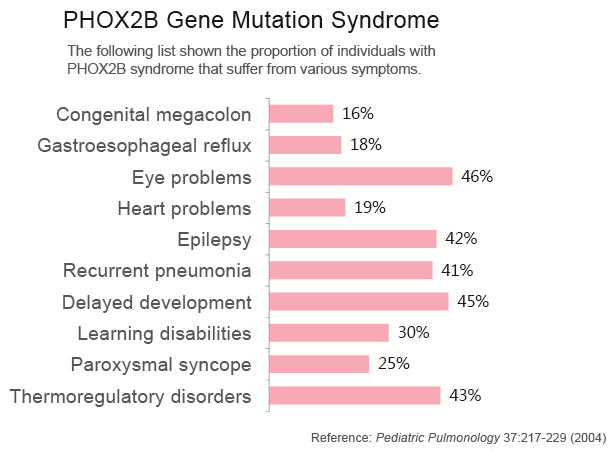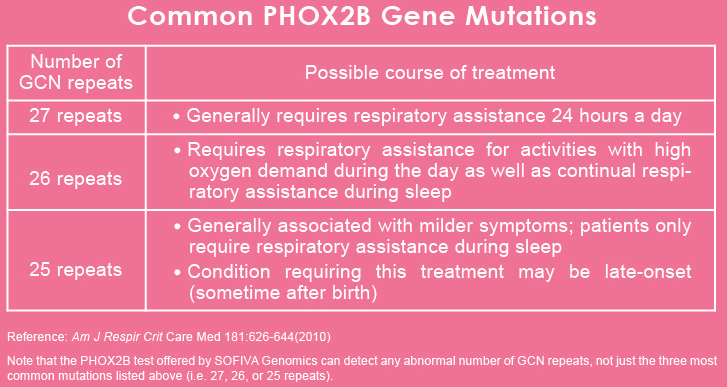Introduction
Congenital central hypoventilation syndrome (CCHS) is a rare neurological disorder characterized by abnormal autonomic central nervous system control of breathing during sleep. Normally, the brain determines how fast and how deep we should breathe. In CCHS, the part of the brain’s function controling breath is abnormal. People with this disorder take shallow breaths (hypoventilate), especially during sleep, resulting in a shortage of oxygen and a buildup of carbon dioxide in the blood.
CCHS is an autosomal dominant disorder congenital and linked to the gene PHOX2B. The gene PHOX2B provides instructions for making a protein that acts early in development to help promote the formation of nerve cells (neurons) and regulate the process by which the neurons mature to carry out specific functions (differentiation). Mutations in the gene PHOX2B are believed to interfere in PHOX2B protein's role, especially in the autonomic nervous system, resulting in the problems regulating breathing and other body functions that occur in CCHS.
Indication
Mostly, Congenital Central Hypoventilation Syndrome (CCHS) is caused by idiovariation (spontaneous mutation) even though it is an autosomal dominant disease. It is recommended to those
1. Who has a family history
2. Who has concern about having spontaneous mutation of CCHS.
Description
How It Works
Step1:Discuss with your doctor and fill the consent form as well.
Step2:Take a few drops of blood from your baby’s heel after your baby is 24 hours old, but before your baby leaves the hospital.
Step3:The blood sample is sent to a newborn screening laboratory.
Step4:DNA will be extracted from the blood for screening.
Step5:The report will be given in 10 working days.


